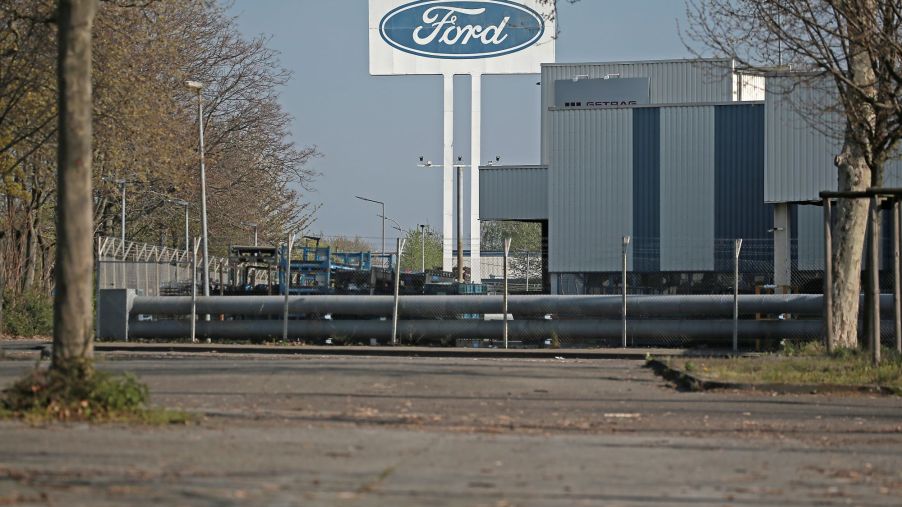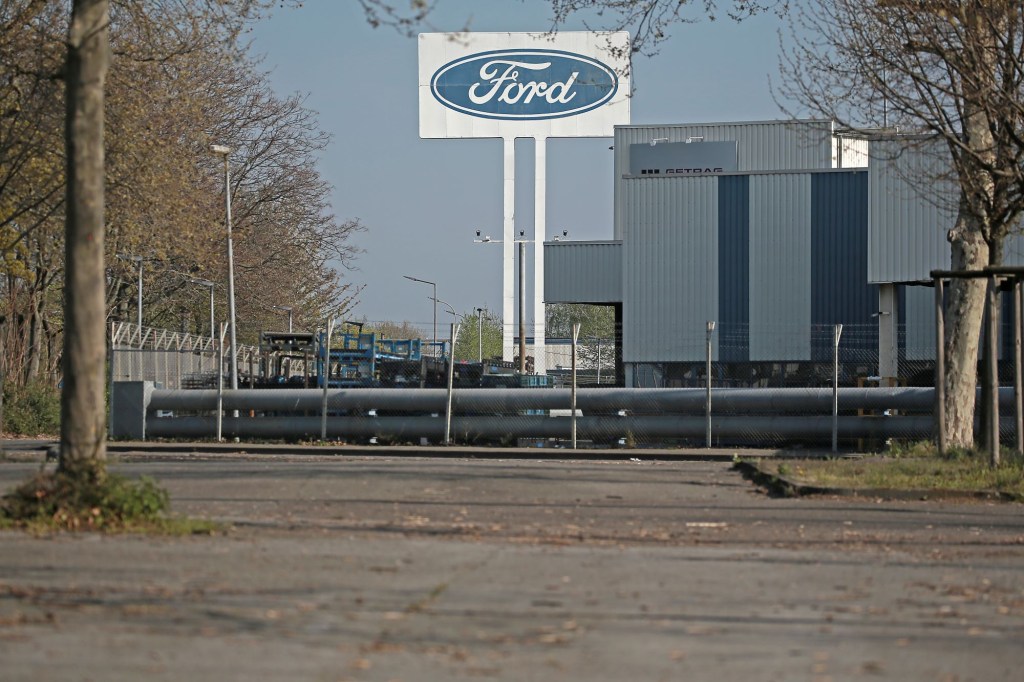
Ford Stops Production at Certain Plants as the Chip Shortage Problem Persists
Automakers might be recovering from the pandemic conditions and forced shutdowns of 2020, but they’re facing an even bigger problem now. The semiconductor chip shortage is still plaguing production lines across the industry. Ford recently stopped making vehicles in a few facilities to try and reduce the adverse impacts of the shortage.
The chip shortage began to be problematic in March of 2020. Demand surged as a mass transition to digital resources began and stalled supply chains. Chipmakers began re-allocating their reserves to the technological industry, creating a shortage for other segments, including the automotive markets. Ford’s recent temporary plant halting is a sign the chip shortage is far from being in the rearview mirror.

The chip shortage is partially responsible for stalling the auto industry
When the auto sector began to recover faster than anticipated in the summer of 2020, it discovered that the chips necessary weren’t accessible, and suppliers were content to maintain their more lucrative relationships with other segments, leaving Ford and other manufacturers in a bind. The auto sector makes up only five percent of the chip business, so it had little influence in obtaining what it needed.
As reported by MotorTrend, the industry’s rebound had been proceeding smoothly until the chip crisis prolonged and threatened the anticipated recovery cycle. Automakers paid close attention, putting the most valuable semiconductors in their most profitable automobiles, like their full-size trucks, popular SUVs, and luxury vehicles. The scarcity became more severe when idling facilities producing vehicles with the lowest demand wasn’t enough.
Every week since then, new announcements from car manufacturers emerged about factories temporarily shutting down worldwide. Ford was compelled to cease manufacturing F-Series trucks when the scarcity became severe, and GM shut down plants responsible for producing its larger vehicles and SUVs as a result.
In 2022 there are signs the car-buying market is bouncing back. However, the semiconductor chip shortage is still a critical challenge for all automakers, including Ford.
Ford suspends some of its production because of chip shortages
CNN’s recent headline about Ford is proof the chip shortage is still threatening the automotive industry. Ford’s shares fell about 1% in trading Monday after the firm stated it is halting or slowing production at several of its North American factories this week due to a lack of the ever-important computer chips.
Ford is shutting down the Chicago Assembly plant, which produces Ford Explorer and Lincoln Aviator SUVs. This week, the Ford Cuautitlan plant in Mexico that makes the Mustang Mach-E will also close. The report also mentions additional production line halts, including at Ford’s Kansas City facility, where the F-150 building will temporarily pause.
What other changes can consumers expect to see
When Ford and others stall production, it means fewer model vehicles will be hitting the showroom floors. The semiconductor chip shortage might be affecting automakers right now. Still, consumers can expect to feel the effects over the next few months when the supply of particular vehicles is slim.
So far, the chip shortage has already cost the worldwide automotive industry a whopping $210 billion in lost revenue for last year alone. IHS is foreshadowing an impact over another seven million units for 2022 and 1.6 million reaching into 2023.
Ford is stopping a few of its production lines, meaning there may be specific model shortages when you’re ready to buy. Based on what we’re seeing so far, the chip shortage will continue to make it harder for car-buying consumers to find and buy the vehicles they want for a while.


